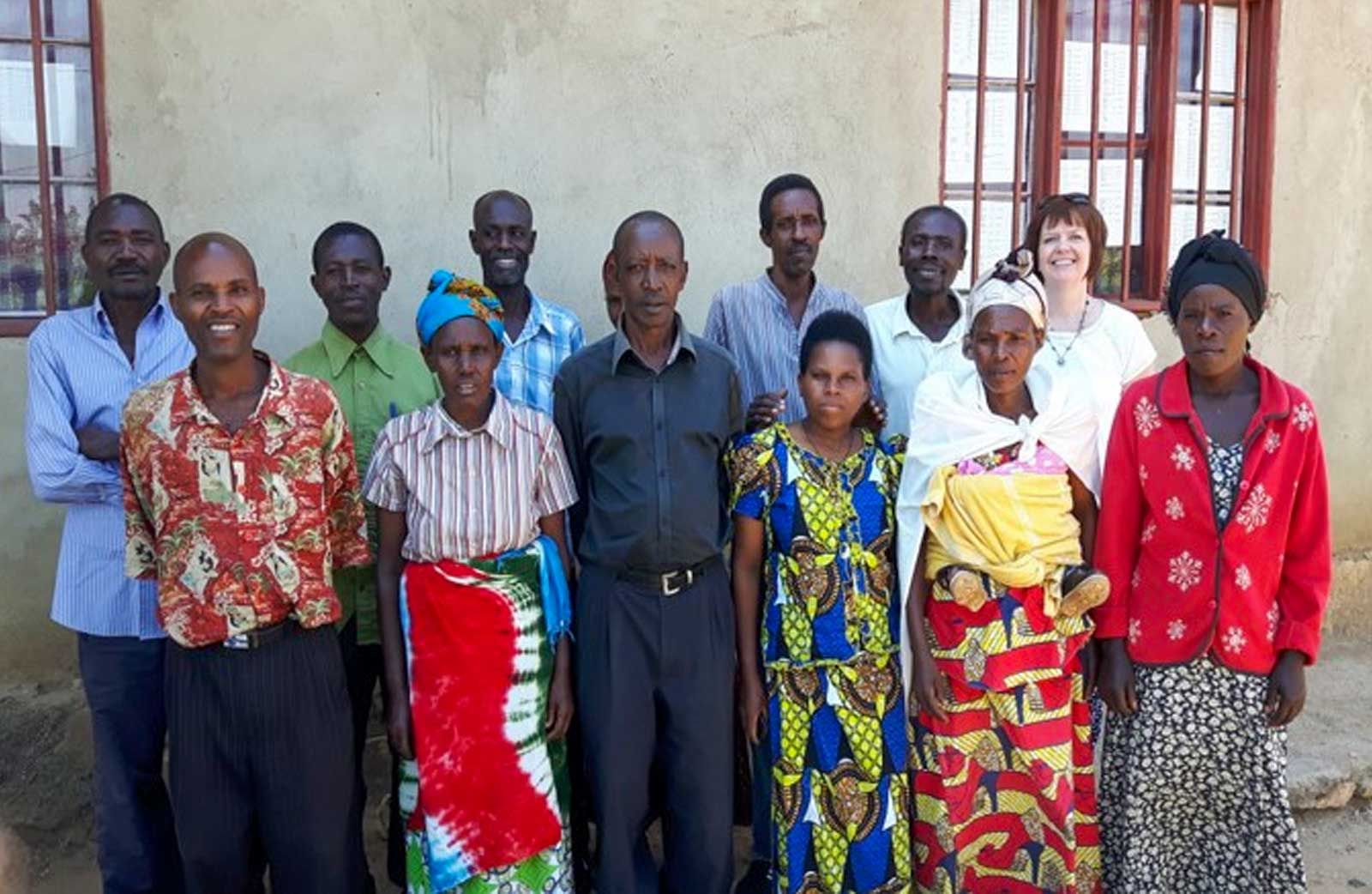
So What Lessons Can Northern Ireland Learn From Rwanda?
Setting the Scene
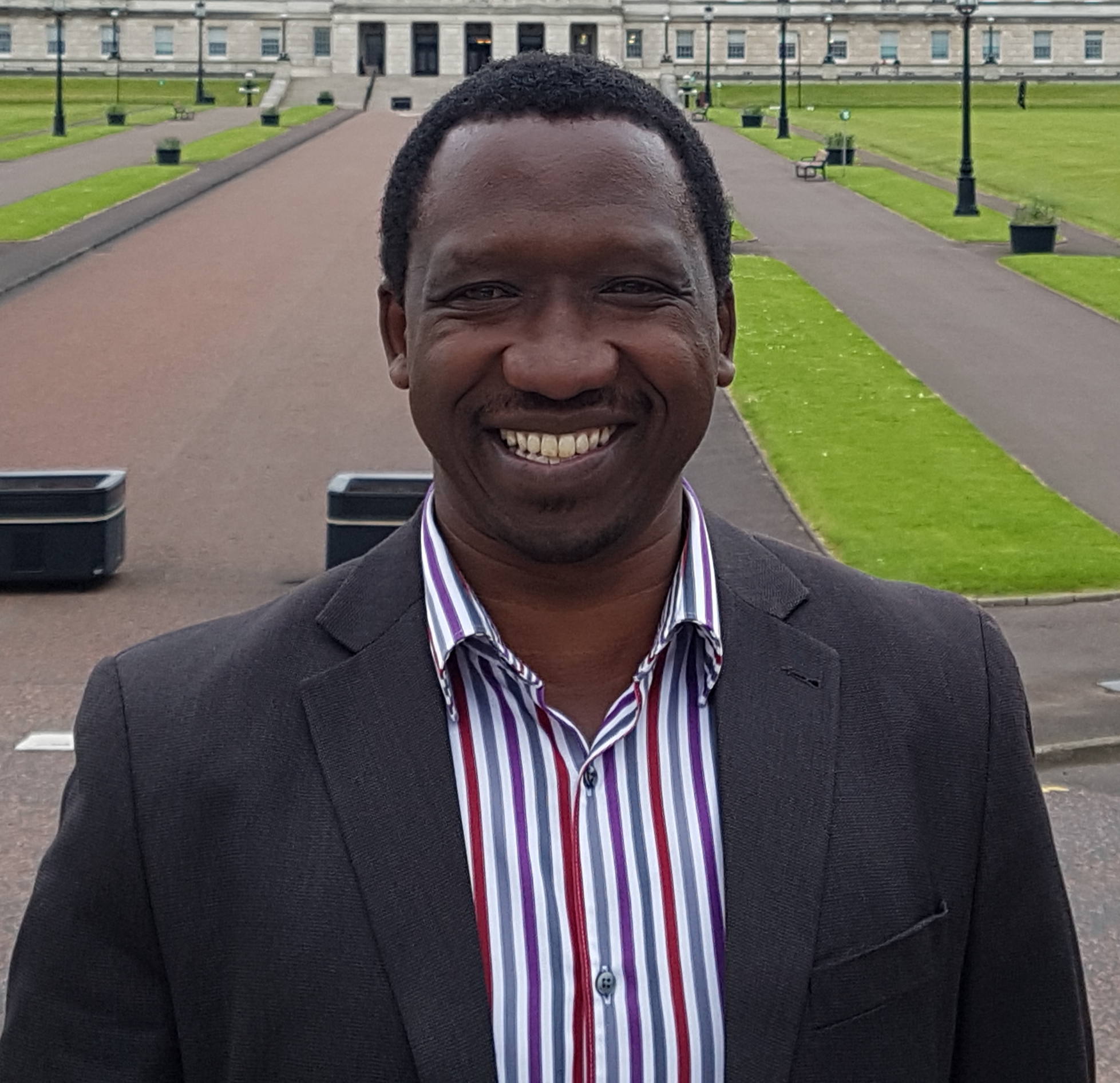
I spent 10 days last May hosting my friend and Tearfund Inspired Individual Christophe Mbonyingabo from Rwanda.
In case you don’t know, and lets face it, not many of us know a lot about the history of Rwanda, I’ll try and help bring some understanding. It will help to contextualise what I hope to reflect on in this blog post.

In 1994, in 100 days just under 1 million, mainly Tutsi were killed by their Hutu friends, family and neighbours in what was one of the most brutal genocides of all time.
It didn’t happen by accident. I listened to Christophe explain in many of the groups and people we met, that the Hutu and Tutsi were not tribes. They were social groupings based around the number of cattle you owned. If you had 10 or more you were Tutsi – less and made a living by farming the land, then you were Hutu. More than that – you could move from one to the other – I suppose through a type of social mobility.
Then the Colonisers arrived, first the Germans and then the Belgians. The Belgians introduced ID cards which aligned you with one group and there you stayed. The King of Rwanda was Tutsi and so the Tutsi worked closely with the Belgians in developing and structuring civic society.
In the late 1950’s other African countries had been seeking, and moving to independence and Rwanda also wanted to move in this direction. The Belgians, unsurprisingly, were none too keen and began to move to a strategic alliance with the Hutu, setting them against their Tutsi neighbour suggesting that they had been their “oppressors”. During the first genocide in Rwanda happened in 1959, the Tutsi King was removed and many Tutsi were killed or displaced to the neighbouring countries.
When Belgium relinquished power and granted Rwanda independence in 1962, the Hutus took their place. Over subsequent decades, the Tutsis were portrayed as the scapegoats for every crisis. Propaganda from radio stations reduced the humanity and value of the Tutsi with words like cockroach and snake used to describe them. Legislation meant that only 10% of public service jobs could be accessed by Tutsi. The Church also followed this 10% rule, making themselves complicit in unjust practices.
In 1990 many of the Tutsi diaspora from the neighbouring countries where they had been displaced, formed themselves into a fighting force called the RPF (Rwandan Patriotic Front) and a civil war began. In 1993/94 the United Nations facilitated peace talks and the Hutu President was in the process of signing a peace deal when his plane was shot down whilst returning to Kigali on 6th April 1994. This was the touch paper that began the 100 days of killing.
The numbers are staggering and hard to get your mind around. But it is the individual stories of pain, suffering and loss that bring home the full horror of the impact hate and scapegoating have on entire communities. The drip feed of propaganda about “the other” should be enough to make us here in Northern Ireland sit up and realise complacency is not an option. 
However, it is the response of Rwandan’s themselves and the leadership shown by those in power that has the most to teach us. As well as around 1 million people killed at least 2 million more fled to the neighbouring countries surrounding Rwanda. The structures of civic society were no longer functioning. Although horrific, it also enabled them to think extremely creatively about solutions to their problems.
Most of the genocide survivors had been close to death themselves. Most of them saw their immediate family members killed. Many sustained dreadful wounds. Rape had been used as a weapon and HIV aids passed onto numerous women and the children that were born from the rape. I’ve heard personal stories that are gut wrenching. This is a legacy which they are still dealing with today and a generation of children have been born with HIV.
Over 3 million people had sought refuge in neighbouring countries, and many more were internally displaced. There were countless orphans and widows, thousands of people with disabilities and generally a very vulnerable population.
The Rwandan People’s Army (remember a Tutsi army) – headed by a man called Paul Kigame – (who is still President today) formed a government of National Unity with members of all parties. Because of the numbers of men killed in the Genocide – many women were also involved in the new government. The break down of Civic Society and its structure like the judiciary, education and health were so broken that they almost had a clean slate to start again.
An important part of this was the establishment of a National Unity and Reconciliation Commission. This commission was given the power of enabling unity and reconciliation at all levels of society – including with those in government. They ensured that the members of the government spent days of retreat away with each other to begin to hear each other’s stories and develop understanding. This has been hugely important as the top down governance of their country has taken place. They have modelled what they want to see in the rest of Rwanda.

Each year in Rwanda from 6th April there are 100 days of remembrance for people to visit the sites of the burial of their relatives. But it’s not just about remembering or wallowing in the past – the message for these 100 days is Remember, Unite, Renew.
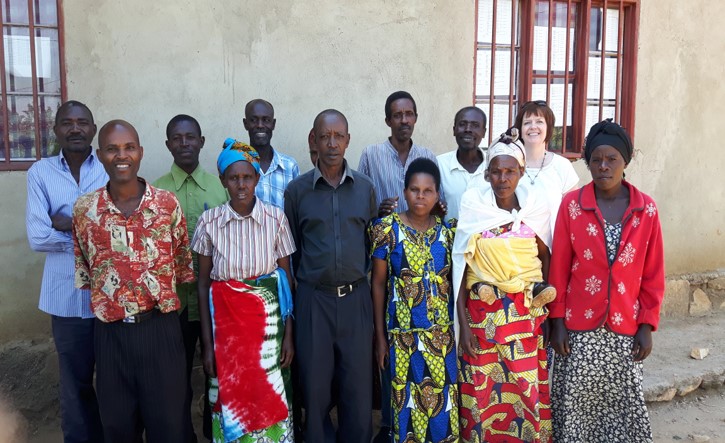
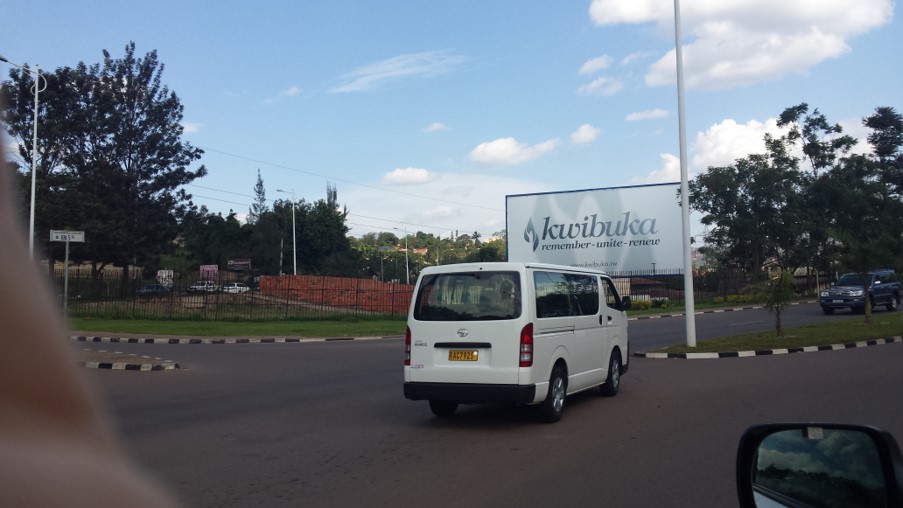 Christophe is the Leader of a Christian Community Initiative in Rwanda called CARSA (Christian Action for Reconciliation and Social Assistance) https://www.carsaministry.org/ – It brings together victims, survivors and their perpetrators. He works through local churches, enabling the victims, survivors and perpetrators who attend, to go on a journey together, to move towards healing and forgiveness. Last May he visited Northern Ireland and spoke at Stormont to the Cross Party International Development group. He talked about the National Unity and Reconciliation Commission facilitating retreats for all the new leaders to listen to each other’s stories and different journeys and experiences. When they heard this – the MLA’s listening to Christophe commented that this was something that our divided leaders at Stormont would have benefited from. Christophe has subsequently returned to Northern Ireland in February of this year to speak at Thrive Ireland’s https://www.facebook.com/nithrive2015/ From Africa to Ireland. He also spoke to a victim’s/ survivors group here in N. Ireland and was warmly welcomed. Another blog post will look at the learning from this.
Christophe is the Leader of a Christian Community Initiative in Rwanda called CARSA (Christian Action for Reconciliation and Social Assistance) https://www.carsaministry.org/ – It brings together victims, survivors and their perpetrators. He works through local churches, enabling the victims, survivors and perpetrators who attend, to go on a journey together, to move towards healing and forgiveness. Last May he visited Northern Ireland and spoke at Stormont to the Cross Party International Development group. He talked about the National Unity and Reconciliation Commission facilitating retreats for all the new leaders to listen to each other’s stories and different journeys and experiences. When they heard this – the MLA’s listening to Christophe commented that this was something that our divided leaders at Stormont would have benefited from. Christophe has subsequently returned to Northern Ireland in February of this year to speak at Thrive Ireland’s https://www.facebook.com/nithrive2015/ From Africa to Ireland. He also spoke to a victim’s/ survivors group here in N. Ireland and was warmly welcomed. Another blog post will look at the learning from this.
Restorative Justice – a model of dealing with the past!
Because of the lack of structure in civic society in Rwanda following the deaths of just under 1 million and the fact that over 2 million had escaped to neighbouring countries like the DRC, Burundi, Uganda and Tanzania – the new government determined that they would go back to an old tribal form of Community Court System called Gachcha Courts. Gachacha means literally “on the grass” and these were local courts where local people voted for local leaders who they trusted to be trained to oversee justice within the community.
The first test was to try those who had been caught and imprisoned because of suspected crimes during the genocide. Each prisoner was given the opportunity to write, or have written their account of what they had done – a confession (if they were indeed guilty) and then each was brought to their local Gachacha court. These courts invited the entire local community to come and participate (on the grass!). So when confessions were read, community members were at liberty to agree with the statement or disagree and give their own account of what they had seen, or what had happened. For others it was a chance to find out what had happened to their family members. By the end there was community agreement of the facts of each individual case. The victim had the opportunity to be there. The perpetrator had the chance to offer repentance and sorrow and ask for forgiveness.
However, this did not mean that they did not suffer consequences for their crimes. Depending on the seriousness of what they had done – the fact of them being willing to confess and ask for forgiveness enabled them to have their sentence reduced by around half – so most people were in prison for about 12 – 15 years for the murders they had committed rather than 25 or 30. For lesser crimes and because of the numbers – the community were able to determine community recompense or recompense for the victim whose property had been damaged or stolen.
Response of the Churches in Rwanda
Because Thrive Ireland is an organisation that works with churches, I want to tell you a bit about what the churches did. The Churches were equally complicit in the genocide, both before in terms of not speaking out against the injustice of the Hutu practices against the Tutsi and during the Genocide in the killing or leading people to places were their neighbours were hiding so they could be killed. I visited one memorial site –

in Nyamata where there was a Catholic Church where 10,000 people had gone seeking refuge and protection. In previous genocides – when this had happened, churches had been respected as refuges. Not this time. The Hutu came and put their rifles through the widows and grills of the church and killed every man, woman and child inside. Those who tried to run were killed with spears, clubs or machetes. Bodies were still being found on my first visit which was in 2015.
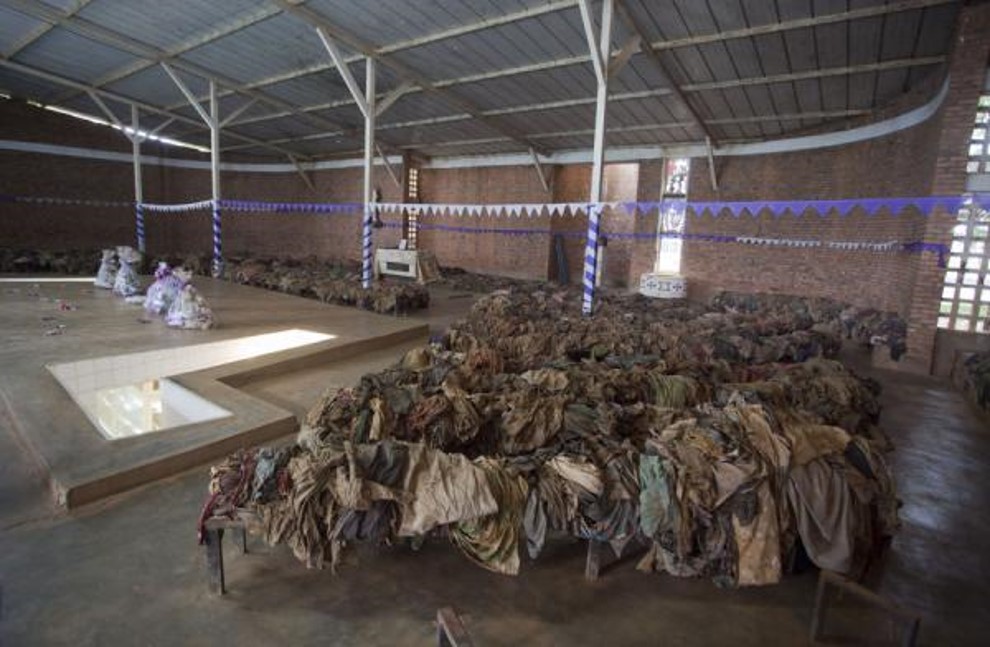
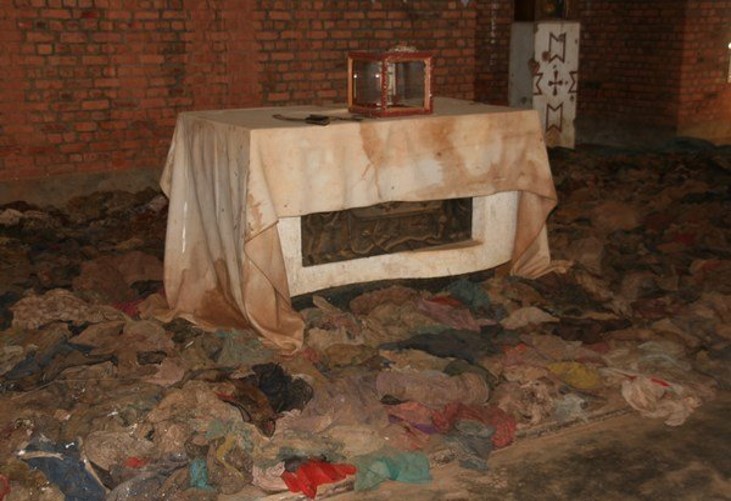
The clothes of those killed, stained with their blood were piled on the benches in the church – a Statue of Mary which had been said by the Hutu to look like a Tutsi – had her face shot off.
In 2014 – after a number of years of conversations, the Churches, who had been complicit both before and during the Genocide – right across the denominations produced a document called The Muzanze Declaration. Here is their acknowledgement and confession. Contact me if you would like a copy of the full declaration.
Acknowledgement and Confession
We fully acknowledge that:
- The church focused too much on making people members of their denominations more than making them disciples of Jesus Christ, in so doing, many converts became only nominal Christians.
- The church kept silent, and never spoke or fought openly against the evil.
- The church never addressed fully the issue of social relationships of the Rwandese that had been characterized by division and discrimination.
- The church lost her prophetic voice in the nation.
And then a statement of
Repentance and Forgiveness
They said – As Rwanda church leaders:
- We ask God for forgiveness for not fulfilling our mandate of making Rwandese disciples of Jesus Christ, and instead turning many of them into nominal Christians.
- We ask the nation and the genocide survivors in particular for forgiveness, for not speaking enough against ethnic discrimination in the history of the nation and of the church, until it led to the genocide against Tutsi.
- We ask forgiveness from the people of Rwanda in general who did not find in us the trustworthiness and compassion that they expected from us when people were being killed in the genocide against Tutsi.
- We ask forgiveness from the genocide survivors and other vulnerable people, for we did not care and tend to their needs as much as we should have, and nor did we own their problems as if they were ours.
- We ask forgiveness from the church members for the bad example set by some of our fellow church leaders who involved themselves in the politics of ethnic and regional divisions out of their personal interests, and who also were involved in the genocide against Tutsi.
- We also ask forgiveness as church leaders for the situations where we used ethnic divisions as a means to gain or maintain leadership positions.
- We church leaders of Rwanda, attest that the problem is not the so-called “Ethnic groups” (Hutu, Tutsi and Twa) but the way they have been used by some for personal interests.
Christophe encouraged us in Northern Ireland : “The post genocide story of Rwanda should send a message of hope and encouragement to those countries emerging from conflicts. It is true that Rwanda is not a paradise, in any case paradise is yet to be found anywhere on this earth. But Rwanda has definitely made a huge step towards sustainable peace and development.”